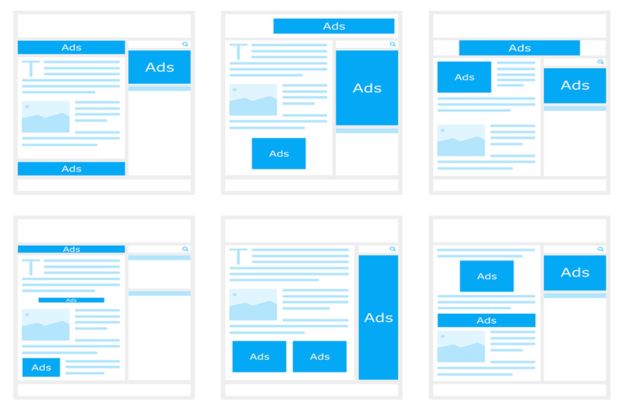The Best and Worst Buzzwords for Job Seekers

Like them or not, buzzwords and jargon are commonplace in today’s world, and this is especially true in the modern workplace environment. Buzzwords can be useful when used in the workplace, but should employers also use them in job postings as a means to attract talent?
To try and find out, an e-learning platform named Preply recently surveyed 1,500 American workers to better understand the effect that buzzwords and jargon can have on the application process.
In short, they found that the use of buzzwords and jargon in job postings can make a difference in whether or not someone applies for a job. Nearly 70% of surveyed respondents said that the use of trendy language in a job posting positively influenced their decision to apply for a position at a company.
What are the best buzzwords employers should use to attract job seekers? Let’s find out.
Buzzwords in job postings
As mentioned above, a majority of job seekers ultimately respond positively to buzzwords although not everyone is impressed by them. The survey found that 1 in 5 job seekers have decided not to apply for a job due to the use of jargon or buzzwords in a job posting.
Listed below are both the best and worst buzzwords for employers to use in job postings:
The business buzzwords most likely to be red flags for job seekers
- Rockstar
- Wear many hats
- Thick skin
- Work hard, play hard
- Schedule TBD
- Urgently hiring
- Ninja
- Hit the ground running
- Fast-paced environment
- Overachiever
The business buzzwords least likely to be red flags for job seekers
- Proactive
- Empower
- Leverage
- Lots of perks and benefits
- Proven track record
- Resilient
- Fun/Amazing/Unique company culture
- Sense of humor
- Passionate
- Competitive salary

So now that we’ve seen the best and worst buzzwords for job seekers, let’s take a minute to analyze what this means.
When looking at the list that was most likely to be red flags, there are keywords that allude to working more (work hard, play hard, wear many hats, overachiever and schedule TBD). Job seekers seem to be turned off by words that imply you will be working more than what is required. Employers would be wise to avoid words like this in fear that good candidates are being scared away based on the language in the job posting.
Urgently hiring and hit the ground running also could imply that a business is short staffed and that a potential hire will be expected to onboard at an accelerated pace.
When looking at the words that are least likely to be red flags, we see words that should encourage people to apply like “lots of perks and benefits” and “competitive salary”.
These are words that most job seekers like to see in a job posting.
Words like “proactive”, “empower” and “passionate” speak to the culture at a company and are also great words to include in a job posting.
Employers would be wise to become familiar with the terms most likely and least likely to alarm job seekers and adjust their job postings as needed.
Using buzzwords and jargon in the workplace
The use of business buzzwords and jargon in the workplace can also have benefits on top of landing a new job. The survey from Preply found that 7 in 10 American workers currently use buzzwords and jargon and 71% of those surveyed said using buzzwords makes them sound more professional and can help in advancing their career.
Many employees use buzzwords because they see their boss or upper management using these words the most. 31% of American workers said upper management uses business buzzwords and another 24% said their direct supervisor uses business buzzwords on a regular basis.
The most frequently used business buzzwords:
- Win-win
- Culture (e.g., “Company culture”)
- ASAP (as soon as possible)
- Think outside the box
- Moving forward/Going forward
- Circle back
- It’d on my radar
- On the same page
- Bring to the table
- New normal
While using buzzwords and jargon can help you sound more professional, some words and phrases can have the opposite effect. Nearly 20% of respondents said that they dislike hearing buzzwords and jargon.
Employees should be mindful when using any of the words listed below as they are among the most hated business buzzwords and jargon in America.
- New Normal
- Culture (e.g., “Company culture”)
- Circle back
- Boots on the ground
- Give 110%
- Low-hanging fruit
- Win-win
- Move the needle
- Growth hacking
- Think outside the box

As you may have noticed there is some overlap with words that are among the most commonly used but also the most annoying. There is a fine line between wanting to use language that is line with what your colleagues are using and language that annoys them. Because of this it is important to be mindful of the words that you use and how people perceive them.
Buzzwords that are the least likely to annoy a colleague:
- At the end of the day
- Debrief
- Sweep the floors
- SMB (Small and mid-size business)
- Table this
- B2C (Business-to-consumer)
- Blue sky thinking
- Ideate
- Game changer
- Teamwork/teambuilding/team players
Why the language you use matters
Does using jargon and business buzzwords make communication easier or more difficult?
That answer might depend on who you ask. Many American workers use buzzwords as a means to communicate more effectively and to also sound more professional and advanced in their career.
For others the use of buzzwords can be confusing and deter someone from interacting with colleagues or from even applying for a job in the first place.
Whichever side of the argument you fall on, try to be mindful of how you communicate with colleagues moving forward as the words you use have a direct impact on the way you are perceived.
This guest post was authored by Matt Zajechowski

Matt is passionate about language, storytelling and communicating effectively with others.

